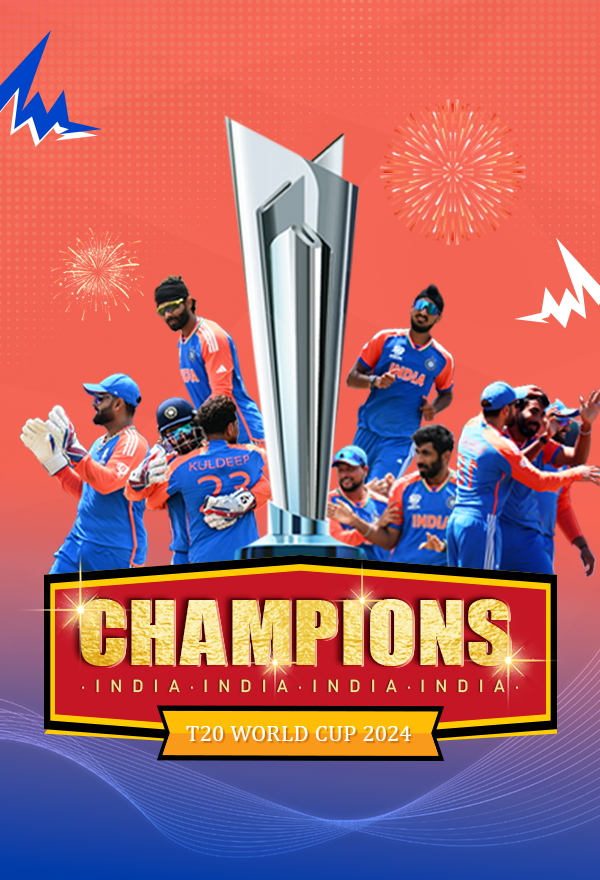
sanjeev
khelja|08-04-2025
A four-hour twenty-eight minute podcast on the IPL[1]? On a US tech-business platform? Pass, maybe? Except this is 'Acquired' amongst the top three tech podcasts on Apple and Spotify about "stories and strategies" of great companies.
Like Visa, Ikea, Costco, Hermes among others.
But what could Acquired's hosts, Ben Gilbert and David Rosenthal, former venture-capitalists now full-time podcasters, say about the IPL for that long? Yes, we know its "fastest growing, most dynamic and most disruptive force in the sports industry today." But then the corker, "it might just be on track to surpass the NFL as the world's most valuable sports league." Okay now, cool those jets.
One step at a time, please.At the outset, Acquired introduces the IPL to US listeners of which much is known. That said it also outs some delicious previously-unknown details.
For an Indian listener, Acquired contextualises the IPL against the Big American leagues - NFL, NBA, MLB and NHL. Early on Gilbert says the IPL, "carefully studied all the mechanics that made the NBA and the NFL as successful… and then applied them on steroids." Through the pod, we understand what the IPL looks like from outside in - purely as a sports entertainment entity.
Acquired is a forensic examination of the IPL's architecture, components and its possible future.Let's first deal with 'being on track to surpass the NFL'. The IPL's current valuation is $16b with annual revenues of $1.6-1/7b. Rosenthal points out, "Here's the kicker. This for a league that currently plays only 74 games in a season that lasts only two months."
It is the IPL's less-bang-more-bucks equation which baffles the world sports industry. Major League Baseball (MLB) lasts six months, has 30 teams, 2500 games, media valued at $1.7m per game.
The NFL's season is five months, 32 teams, 285 games, $45-49m rights value per game. Against this, is the IPLs $16-17m per match and the Premier League's per match $15-16m. Gilbert says, "The NFL is so far ahead of everything else, that it's a bit farcical to say the IPL is second." The IPL though, with its 10 teams "it's not the NFL, it's not the NBA but it's amazing that in 16-17 years, these things are in the billion-dollar conversation."Acquired examines the IPL's structure and how in the early Lalit Modi years, it had included what are identified as key to "design the perfect sports league": the sport's best athletes in evenly-contested games.
The podcasters toss aside basketball and European football's folklore and mythologisation of unbeaten title streaks as business imperfections. Baseball they say has gone "really, really wrong over the last set of decades" while European soccer is the "worst example" of competitive imbalance: "with the top two, five franchises (clubs) that are spending the most money, buying the best players and winning every year." That argument trashes tradition, history and fan sentiment, but is based on the sport-is-business premise.Naturally that the auction and the Bollywood razzmatazz easily forms part of the overall package leading to non-stop nightly entertainment for two months. "The IPL is like the Oscars. It's awards season, but it's every night." The IPL, Rosenthal says is "solving every little pain point of other sports leagues."
The single most obvious, glaring difference between the IPL and the Big Four is well-known. No matter the IPL's big pile of cash, its players - the only reason broadcasters offer nearly ₹137 crores per match - are paid the lowest wage compared to other major leagues. Where "on average" players get "50 percent of the league's revenues", the IPL player fees percentage is between 12 -15 % of league revenue.
Acquired also highlights a lovely factoid - IPL is one of the rare global sports leagues, with an almost equal male-female viewership gender split. Gilbert-Rosenthal talk of 50-50 but the most recent Indian market research calculation, had IPL's male-female viewership at 57-43. Also, nowhere else in world sport - fair to extrapolate Acquired's world to USA here - did a men's match-day shirt feature a beauty product logo. Lotus Herbals for Kings XI Punjab in 2018 appeared on Chris Gayle's right pectoral, "a hardcore female brand on an alpha male chest." This year, a KKR sleeve displays skin-care brand Joy. Not to forget that RR play in pink from 2018 onward and in 2020 ran a campaign around breaking menstruation taboos.
Acquired is a deep-dive into the IPL's valuations, growth trajectories and future possibilities. The chance of the IPL getting close to NFL monies is discussed clinically across bear and bull scenarios. The bull and mega-bull cases feature Saudis, a growing Indian middle-class, cricket's uptick in the US with Major League Cricket and LA 2028 plus the decline of baseball. The bear case: whether the JioStar merger could affect the competitive environment over media rights values, as well as the challenge of doing business in India with its 'low trust environment," where Acquired notes change.
To American eyes, India's stadia, "are not crappy" but resemble, "American sports stadiums from the 1970s." The Indian cricket fan experience is not discussed but a tricky query emerges: "Do you need a parent governing body above the league?" The NFL ain't got any, remember?

IPL 2025: Know how the bat ‘scam’ happens? Cheating with public bowlers

‘All this is not good for me at the age of 50 …’, Ricky Ponting broke silence after winning, shocking revelations

Yuzvendra Chahal became the topper among the bowlers who took 4 wickets, see the top-5 list of the highest wicket-takers in IPL

Are Rohit Sharma retiring from Test, now the silence broke himself between IPL 2025, shocking revelations







